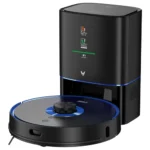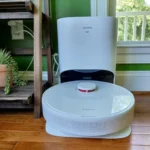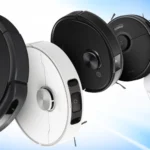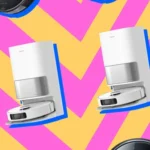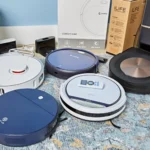As technology advances, smart vacuum cleaners have become the norm in many households, offering convenience and ease in cleaning. However, one issue that many homeowners face is the loud noise that these devices produce. The constant whirring and buzzing can disrupt your peace and quiet, making cleaning a dreaded chore. So, what can you do about it? In this article, we will take a look at the importance of reducing noise levels in smart vacuum cleaners, the causes of noise, and most importantly, steps you can take to effectively reduce the noise level of your vacuum cleaner.
Why is Noise Level Important
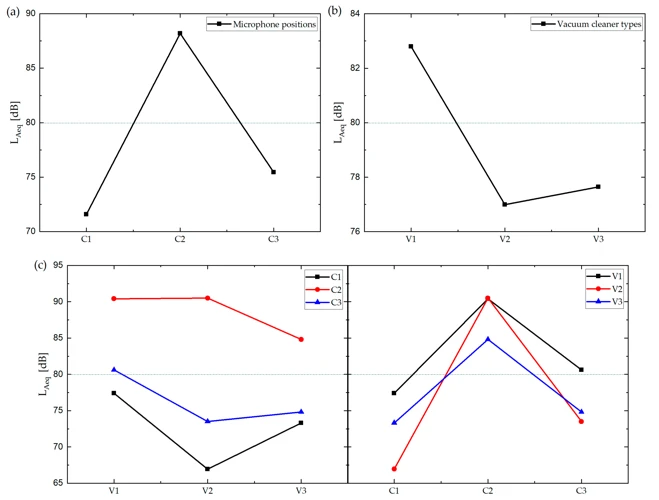
When purchasing a smart vacuum, you might primarily focus on its cleaning efficiency and features. However, it is equally important to consider the noise level of the smart vacuum. Excessive noise pollution can cause various health problems and have serious consequences. So, in this section, we will explore the importance of noise level in smart vacuums and its impact on our daily lives. Understanding this crucial factor before buying a smart vacuum will help you make a well-informed decision, keeping your personal preferences in check. With the growing concern over noise levels, it is essential to understand why noise level is important in smart vacuums, and how it can affect the vacuum’s performance and your health.
Noise Pollution
Excessive noise can be harmful to human health and well-being. It can cause annoyance, stress, and even hearing loss. Noise pollution is a major problem in our society, and it can have negative effects on both our physical and mental health. Noise pollution is caused by a variety of sources, including transportation, construction, industry, and household appliances.
Smart vacuum cleaners are known for their efficiency and convenience in cleaning, but if they produce too much noise, they can contribute to noise pollution in a home. It is essential to keep the level of noise to a minimum in order to create a peaceful and conducive environment for relaxation and work.
Reducing the noise level in smart vacuum cleaners can have a significant impact on noise pollution in a home. By finding the main sources of noise and taking necessary measures to reduce it, one can achieve a quieter and more peaceful cleaning experience.
One of the main sources of noise in a vacuum cleaner is its motor, which can produce high levels of noise when it is running at full speed. The fan and filter can also contribute to noise levels. By understanding the cause of the noise, one can take necessary steps to reduce it or eliminate it entirely.
Factors that contribute to the noise level of smart vacuum cleaners include motor power, brush roll speed, and suction power. A comparison of the noise level in different smart vacuums is available on qwikfold.com.
It is important to note that reducing noise level should not be done at the expense of cleaning power. Smart vacuums with advanced filtration systems such as HEPA filters that capture the smallest of particles and maintain a healthy living environment should not be compromised.
Smart vacuum cleaners have made cleaning easier and more convenient, but if they produce too much noise, they can contribute to noise pollution. It is essential to keep the noise level to a minimum to have a peaceful environment at home. Regular maintenance, installation of sound-absorbing materials, and selecting a vacuum with lower dBA are among the steps to reduce the noise level of a smart vacuum cleaner.
Finding the Cause of Noise
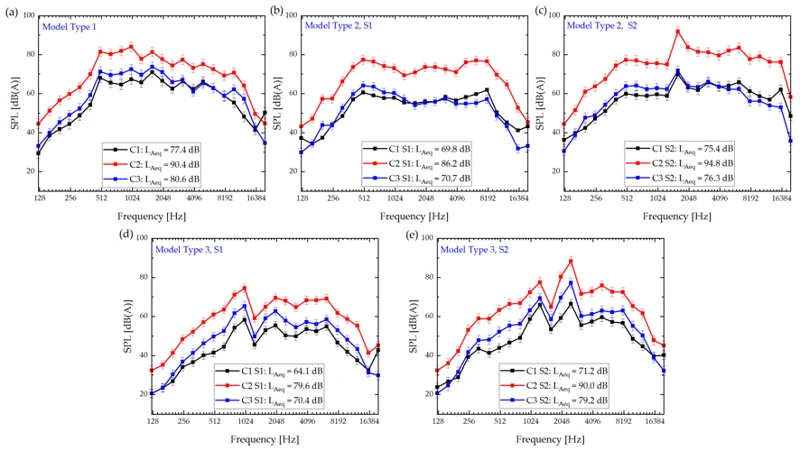
Have you ever wondered why your smart vacuum cleaner makes so much noise, even with advanced technology? It can be frustrating to have a loud buzzing noise in your home, especially if you are trying to clean while someone else is working or sleeping. However, before you can reduce the noise, you need to find the root cause of it. In this section, we will dig deeper into the different components of a smart vacuum cleaner that may be contributing to the loud noise. By understanding the root of the problem, we can find effective ways to reduce the noise level and create a comfortable and peaceful cleaning experience. So let’s take a closer look at the components that make up a smart vacuum cleaner, including the motor, fan, and filter, to determine where the noise is coming from. If you haven’t already, make sure to read our previous post on the importance of noise level in smart vacuum cleaners and the impact noise pollution can have on your home. Additionally, you may want to check out our article on smart vacuum filtration systems for more information on how the filter can impact the noise level.
Motor
When it comes to noise level in smart vacuum cleaners, the motor is often the main source of the racket. The motor is an essential part of the vacuum cleaner that powers the device’s suction power. However, some motors can produce more noise than others.
Here are some of the reasons why your smart vacuum cleaner’s motor could be producing more sound than expected:
- The motor is old and needs to be replaced.
- The motor has some mechanical issues such as loose belts or bearings.
- The motor is not compatible with the vacuum cleaner’s design, leading to increased noise.
How can you reduce the noise level produced by the motor?
- Choose a vacuum cleaner with a motor designed to reduce noise. Look for a vacuum cleaner with a lower decibel rating (dBA). The lower the dBA, the quieter the motor. Keep in mind that a motor with a lower dBA rating may cost more than a vacuum cleaner with a louder motor. However, it will be worth considering the long-term benefits of quiet operation.
- Maintain your vacuum cleaner’s motor regularly. Regularly cleaning and maintaining your vacuum cleaner can help keep the motor running smoothly and decrease the noise level. Check the belts, bearings, and other components of the motor regularly and replace or repair them when needed.
- Use sound-absorbing materials. Applying sound-absorbing materials to your vacuum cleaner’s motor can reduce the noise level. You can use specially designed foam or rubber matting to reduce noise. However, it is essential to ensure proper airflow within the device, as blocking any vents or ducts can affect the vacuum cleaner’s performance adversely.
Reducing the noise level of smart vacuum cleaners could provide a significant relief to people who find the previous models loud and disruptive. Take a few steps to decrease the noise level of the motor and enjoy a much quieter cleaning experience.
Fan
When it comes to reducing the noise level in smart vacuum cleaners, identifying the cause of the noise is crucial. One of the common culprits of the noise is the fan. The fan plays an important role in creating the suction power that picks up dirt and debris from floors and carpets. However, it can also generate excessive noise levels if not appropriately addressed.
The fan’s noise level primarily depends on the blade design, motor speed, and clearance between the blade and housing. It is essential to choose a vacuum cleaner whose fan is optimized to reduce noise levels. However, if you already have a vacuum cleaner with high fan noise levels, here are some steps that you can take to reduce the noise level:
| Step | Action |
|---|---|
| 1. | Check for Damage: Inspect the fan blades for any damage, such as chips or cracks, as they can cause imbalance and increase noise level. Replace the fan if necessary. |
| 2. | Clean the Fan: Dust, hair, and other debris can accumulate on the fan blades, disrupting their balance and causing extra noise. Use a soft brush or cloth to remove these pollutants. |
| 3. | Change the Fan Speed: Most smart vacuum cleaners come with adjustable fan speed. Lowering the fan’s speed can significantly reduce the noise level. However, note that this might also reduce the suction power and cleaning efficiency. |
| 4. | Install a Sound-absorbing Pad: You can buy and install a sound-absorbing pad between the fan and the housing. The pad reduces the vibration and noise generated by the fan. |
| 5. | Enclose the Fan: Building an enclosure around the fan can reduce the noise level. However, this method can cause overheating and reduce the fan’s efficiency, and it’s advisable to consult a technician for guidance. |
By following these steps, you can significantly reduce the noise level generated by the fan and create a more peaceful cleaning experience. However, keep in mind that some sound reduction methods may affect the cleaning efficiency of the vacuum cleaner; thus, it’s essential to find a balance between noise level and cleaning performance.
Filter
The filter is an essential component in a smart vacuum cleaner that helps to prevent dust and other small particles from being released back into the air. However, it can also be a significant contributor to the noise level produced by the vacuum cleaner. The movement of air through the filter can cause a whistling or hissing sound, which can be quite loud, especially if the filter is dirty or clogged.
To reduce the noise level caused by the filter, there are several steps you can take. These include:
- Clean or replace the filter: A dirty or clogged filter can cause more noise as air struggles to pass through, which can increase the sound level produced by the vacuum cleaner. It’s essential to clean or replace the filter regularly to ensure it’s in good condition.
- Choose a high-quality filter: A high-quality filter may be more expensive, but it can reduce noise levels because it’s designed to allow air to pass through more efficiently. It may also be more effective at trapping smaller particles, which means you don’t have to replace it as often.
- Ensure proper installation: Sometimes, the noise level caused by the filter can be due to improper installation. Make sure that the filter is installed correctly and securely to prevent unnecessary noise.
- Use a noise-reducing cover: Another option is to use a noise-reducing cover over the filter. Sound-absorbing materials can absorb noise and reduce the amount of sound that’s emitted by the filter. These covers can usually be purchased online or through a vacuum cleaner supplier.
By following these steps, you can reduce the noise level produced by the filter in your smart vacuum cleaner significantly. Remember, a smart vacuum cleaner is designed to make your life easier, and reducing noise levels is one way to ensure it doesn’t become more of a hassle than a help!
How to Reduce Noise Level
When it comes to household appliances, noise level can be a significant factor that affects the overall user experience. Smart vacuum cleaners, although designed to make cleaning a breeze, can generate loud noise that is not only disturbing but can also cause hearing damage if exposed to for prolonged periods. Fortunately, there are several proven ways to reduce the noise level in smart vacuum cleaners. Let’s take a look at some effective strategies that you can easily implement to make your cleaning sessions quieter and more enjoyable.
Choose a Vacuum with Lower dBA
When shopping for a smart vacuum cleaner, it’s important to pay attention to its noise level, as it can greatly impact your overall cleaning experience. Choosing a vacuum with a lower decibel rating (dBA) can make a significant difference in reducing noise pollution in your home. Here are some things to consider when looking for a vacuum with a lower dBA:
- Check the decibel rating: Vacuum noise levels are measured in decibels (dBA). A vacuum with a rating of 60 dBA or lower is considered quiet and less likely to disturb the peace in your home. Higher ratings can be quite loud and disruptive.
- Look for a vacuum with a brushless motor: Traditional vacuum motors are often the main culprit of excess noise. Smart vacuum cleaners with brushless motors, however, tend to operate more quietly. This is because brushless motors lack the friction and vibration that contribute to noise.
- Consider a robot vacuum: Robot vacuum cleaners are designed to operate more quietly than traditional upright vacuums. This is partly because they are smaller and can navigate around furniture with ease. Some robot vacuums even have a “quiet mode” setting that further reduces noise levels.
- Read reviews: Before making a purchase, be sure to read reviews of the vacuum you’re considering. Look for feedback on noise levels specifically, as this can provide valuable insights into how loud the vacuum actually is in real-world usage scenarios.
- Compare different models: Shopping around and comparing different models can help you find the quietest and most effective vacuum for your needs. Don’t be afraid to ask questions and take your time to find the right vacuum that fits your budget and noise preferences.
By choosing a vacuum with a lower dBA rating and taking steps to reduce noise levels, you can enjoy a cleaner home without disrupting your household’s peace and quiet. So, when shopping for your next smart vacuum cleaner, keep in mind that a quieter model can make a big difference in your overall cleaning experience.
Maintain your Vacuum Regularly
Regular maintenance of a vacuum cleaner is essential, not only for reducing the noise level but also for its longevity and efficiency. By regularly maintaining your vacuum cleaner, you will be able to identify any potential issues before they become serious problems.
One of the essential aspects of maintaining a vacuum cleaner is keeping it clean. A dirty vacuum cleaner can cause various issues, including increased noise level, suction loss, and even malfunction.
To keep your vacuum cleaner clean, you can use the following maintenance tips:
| Maintenance Tips | Description |
|---|---|
| Empty the Dustbin Regularly | Emptying the dustbin after every use will prevent the dust and debris from accumulating and clogging the machine. A clogged vacuum will work harder, creating more noise |
| Clean the Brushes and Filters | Regularly remove and clean the brushes and filters. Dirty filters and brushes can also cause the vacuum to work harder and make more noise, while reducing efficiency. |
| Check for Cracks and Leaks | Occasionally inspect the vacuum cleaner for cracks and leaks. A loose connection, hose, or motor will lead to a noisy vacuum cleaner. Fix any issues immediately to avoid further damage. |
| Replace Worn Parts on Time | Replace any worn out or damaged parts of your vacuum cleaner. Worn-out parts like belts or bearings can cause the motor to strain, leading to more noise and reducing the vacuum’s effectiveness. |
These simple maintenance tips will go a long way in keeping your smart vacuum cleaner operating quietly and efficiently, ensuring that you get the best cleaning results every time you use it.
Install Sound-absorbing Materials
Reducing noise levels of a vacuum cleaner is important because loud noises can be disruptive to a household, particularly if someone is trying to sleep or concentrate. In fact, noise pollution has become a growing concern in urban areas, affecting people’s physical and mental health. It’s crucial to do everything possible to reduce the noise level of a smart vacuum cleaner.
One way to accomplish this is by installing sound-absorbing materials in your home. These materials help to dampen the noise by absorbing sound waves before they can bounce off walls and other hard surfaces. It is important to note that these materials should not interfere with the vacuum cleaner’s function or safety.
There are several effective sound-absorbing materials that you can install in your home. To start, you can purchase and utilize acoustic foam panels or carpets. These materials are commonly used in recording studios to muffle sound and can also be utilized in your home. Acoustic foam panels are designed to be hung on walls and ceilings, while acoustic carpets can be placed on floors. By covering the walls and floors of your cleaning area with these panels or carpets, you will be able to absorb some of the noise caused by your vacuum cleaner.
If you do not want to install anything on your walls or ceiling, you can also use household items as sound-absorbing materials. For instance, placing thick, heavy curtains or blankets around the area where you plan to vacuum can reduce noise. You can also try placing bookshelves or furniture that have textile surfaces near the area. These materials will also absorb and muffle sound waves.
Another option is to use sound-absorbing insulation. This type of insulation is designed to be installed between wall studs, underfloor, or in ceilings. This can be very effective in reducing noise levels but may require professional installation.
Installing sound-absorbing materials in your home can be an effective method for reducing the noise level of your smart vacuum cleaner. Acoustic foam panels, carpets, curtains, furniture, and sound-absorbing insulation are all options to consider. This step-by-step guide shows that taking little steps can help to reduce the noise pollution and make it easy to enjoy a peaceful and quiet environment, even when vacuuming.
Vacuum When No One is Around
One simple yet effective way to reduce the noise level of your smart vacuum cleaner is to vacuum when no one is around. This is especially true if you have a busy household or work in an office with other people. The sound of a vacuum cleaner can be very disruptive and distracting, so it’s best to do it when no one is present.
Here are some tips to follow when vacuuming:
- Choose a time when no one is in the room or building. This will prevent any disruption or distraction from the sound of the vacuum cleaner.
- If you work in an office, schedule vacuuming after hours or on weekends when no one is around. This will minimize noise pollution and ensure that your colleagues can work in a quiet environment.
- If you have kids or pets at home, consider vacuuming during nap time or when they are outside. This will also prevent them from being disturbed by the noise of the vacuum cleaner.
- Finally, always remember to turn off the vacuum cleaner when you’re finished. This not only saves energy but also prevents any unnecessary noise pollution.
By following these simple tips, you can reduce the noise level of your smart vacuum cleaner without compromising its cleaning power. Remember, a quieter vacuum cleaner means a more peaceful and productive environment for you and those around you.
Conclusion
After going through this detailed article on reducing noise level in smart vacuum cleaners step-by-step, we can conclude that noise is an important factor to consider when purchasing a vacuum cleaner. It not only affects your personal comfort but also contributes to noise pollution.
By finding the cause of noise, such as the motor, fan, or filter, you can take steps to reduce it. This includes choosing a vacuum with a lower decibel rating and maintaining it regularly to ensure optimal performance. Additionally, installing sound-absorbing materials and vacuuming when no one is around can also help to decrease the noise level.
It’s important to note that reducing the noise level may come at a cost, as it could reduce the overall suction power of the vacuum cleaner. However, the trade-off in reducing noise levels is well worth it for the overall comfort of everyone in the household.
In conclusion, reducing the noise level in a smart vacuum cleaner is entirely possible. With thoughtful consideration of the cause of noise and a few adjustments, you can significantly reduce the noise level and improve overall comfort in your home. So, don’t let the noise of a vacuum cleaner disrupt your peace and quiet any longer – take action today to reduce the noise level in your smart vacuum cleaner.
Frequently Asked Questions
1. How loud is a typical smart vacuum cleaner?
Smart vacuum cleaners usually have noise levels between 60-85 decibels, which is equivalent to the sound of a normal conversation or a blender, respectively.
2. Does noise level affect a vacuum’s suction power?
No, noise level and suction power are not directly related. However, a vacuum with a higher noise level may seem like it has more suction power due to the loud noise.
3. What are the main causes of noise in a smart vacuum cleaner?
The main causes of noise in a smart vacuum cleaner are the motor, fan, and filter.
4. Can using a smart vacuum cleaner for longer periods of time increase noise level?
Yes, prolonged use of a smart vacuum cleaner without proper maintenance can increase its noise level over time.
5. Is it possible to reduce noise level in a smart vacuum cleaner?
Yes, there are several steps that can be taken to effectively reduce the noise level in a smart vacuum cleaner, as discussed in this article.
6. Can using sound-absorbing materials affect a vacuum’s performance?
No, using sound-absorbing materials should not affect a vacuum’s performance as long as they do not block the airflow or interfere with any important components.
7. How often should a smart vacuum cleaner be maintained to reduce noise?
A smart vacuum cleaner should be maintained regularly, at least once a month, to reduce noise level and ensure optimal performance.
8. Is it safe to vacuum when no one is around?
It is safe to vacuum when no one is around, but it is recommended to use caution and ensure that the vacuum’s filter is clean to prevent any potential fire hazards.
9. How much can the noise level realistically be reduced by maintenance and sound-absorbing materials?
The noise level can realistically be reduced up to 10-15 decibels through regular maintenance and the use of sound-absorbing materials.
10. What are some popular smart vacuum cleaner brands known for their low noise level?
Some popular smart vacuum cleaner brands known for their low noise level include Dyson, Shark, and Miele.

